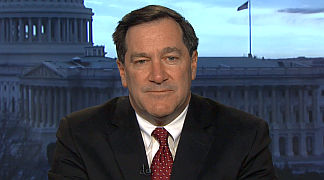 U.S. Senator Joe Donnelly called for Congress to continue its work to help combat the opioid epidemic, following the Centers for Disease Control (CDC) finding Indiana’s overdose rate rose significantly. According to the recently released date from CDC, Indiana’s overdose death rate increased by 28% between 2016 and 2017. Indiana had the 7th-largest increase in the United States. The CDC data showed that between July 2015-July 2016, 1,383 Hoosiers died from an overdose. That rose to 1,767 Hoosiers between July 2016 and July 2017. Donnelly has several times in recent months called for more federal resources to combat the opioid epidemic. In addition, Donnelly has proposed several bipartisan bills to address the opioid epidemic, including to combat the workforce shortage facing treatment providers in rural and underserved communities and he introduced a package of bills aimed at strengthening the tools USDA has to help rural communities.
U.S. Senator Joe Donnelly called for Congress to continue its work to help combat the opioid epidemic, following the Centers for Disease Control (CDC) finding Indiana’s overdose rate rose significantly. According to the recently released date from CDC, Indiana’s overdose death rate increased by 28% between 2016 and 2017. Indiana had the 7th-largest increase in the United States. The CDC data showed that between July 2015-July 2016, 1,383 Hoosiers died from an overdose. That rose to 1,767 Hoosiers between July 2016 and July 2017. Donnelly has several times in recent months called for more federal resources to combat the opioid epidemic. In addition, Donnelly has proposed several bipartisan bills to address the opioid epidemic, including to combat the workforce shortage facing treatment providers in rural and underserved communities and he introduced a package of bills aimed at strengthening the tools USDA has to help rural communities.
Donnelly said, “Every overdose death is someone’s son or daughter, brother or sister, mother or father. While I’m pleased that Congress passed a bipartisan agreement last week to increase opioid funding, we have more work to do. We have to continue working together at every level—federal, state, and local—to expand prevention, treatment, and recovery services as our country struggles to fight back against this epidemic.”
Over the last several years, Donnelly has led the fight in the Senate for increased federal resources to combat the opioid epidemic through prevention, treatment, and recovery services. Last week, Donnelly helped pass a bipartisan budget agreement, which allows for $6 billion over two years toward programs combating the opioid abuse epidemic. Last month, Donnelly welcomed the U.S. Department of Health and Human Services (HHS) approval of Indiana’s Medicaid waiver extension application. The approval will allow Indiana to enhance HIP 2.0 with up to $80 million in annual federal funding to support efforts to address the opioid crisis.
He also spoke on the Senate floor in strong opposition about cuts to the Office of National Drug Control Policy (ONDCP), following news reports the Administration plans to slash it by 95 percent. ONDCP coordinates federal efforts to combat opioid abuse and heroin use, and also administers the High Intensity Drug Trafficking Area (HIDTA) program, which supports and enhances cooperation between federal, state, and local law enforcement agencies to combat drug trafficking.
In 2016, several of Donnelly’s provisions were signed into law, and he successfully advocated and continues to advocate for funding that would expand prevention and treatment programs. The Comprehensive Addiction and Recovery Act (CARA) and the 21st Century Cures Act, both of which Donnelly helped pass into law, have programs and funding to combat the opioid abuse and heroin use epidemics. Through the Cures Act, Donnelly helped Indiana secure nearly $11 million in federal grant funding in 2017 that will support prevention, treatment, and recovery services across the state.
In November 2017, Donnelly’s bipartisan bill to help address veterans’ opioid abuse was signed into law by President Trump.













